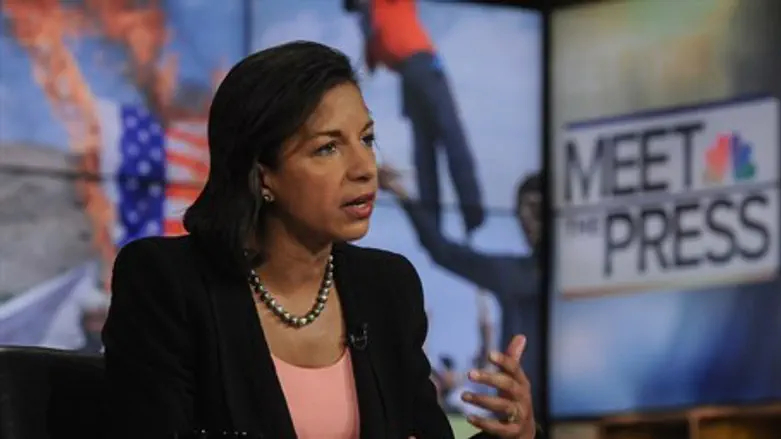
Hizbullah is working to bolster Syrian President Bashar Assad’s regime and its fighters are part of his “killing machine,” the U.S. ambassador to the UN said on Monday.
“[Hizbullah leader Hassan] Nasrallah’s fighters are now part of Assad’s killing machine and Hezbollah leaders continue to plot with Iran new measures to prop up a murderous and desperate dictator,” Ambassador Susan Rice was quoted by The Daily Star as having said during a UN Security Council debate on the situation in the Middle East.
Rice also warned of the possibility that the ongoing unrest in Syria will have negative repercussions on other countries, giving Lebanon as an example of a state that is feeling the effects of the conflict.
“No one can deny that Assad’s war against the Syrian people now poses real challenges to all of Syria’s neighbors, including Lebanon. From deadly Syrian regime attacks across the border to tens of thousands of refugees, Lebanon is already suffering the consequences of this conflict,” she said.
The ambassador also criticized Hizbullah for its use of the term “resistance” to describe itself, saying, “Hizbullah’s active and growing support for Assad’s war exposes Hassan Nasrallah’s claims of promoting Lebanon’s national interest as nothing more than a deadly form of deception. The group’s leaders may try to change the subject by invoking hollow rhetoric about so-called resistance, but the truth is plain to see.”
Dismissing Nasrallah’s denial of reports that members of his group were fighting alongside Assad’s forces, Rice called on the international community to dig deeper into Hizbullah’s involvement in the Syrian conflict.
“We encourage the international community to counter Hizbullah’s terrorist activity and do more to expose Hizbullah’s deepening involvement in Assad’s war,” she said, according to The Daily Star.
Rice added that “we commend the Lebanese government – and the Lebanese Armed Forces in particular – for maintaining stability and law and order at this critical juncture.”
Jeffrey Feltman, UN undersecretary-general for political affairs and former U.S. ambassador to Lebanon, said that Lebanese areas near the border with Syria are still threatened by a possible spillover from Syria.
Feltman told the Security Council that the Syrian conflict is spiraling beyond its border, affecting Lebanon, the Golan Heights, and the Syrian-Turkish border.
During the same discussion, Israel's ambassador to the United Nations, Ron Prosor, called the Security Council to take strong measures against Hizbullah, accusing some members of the Council of treating the group “as if it were the Red Cross, not a terrorist group which threatens to plunge the region into bloodshed.”
Official sources in the Lebanese government indicated last month that Hizbullah has increased the size and scope of its assistance to Assad’s government, sending special advisors to Syria in order to assist Assad in beating back rebel forces.
The sources said that the assistance Hizbullah is providing Assad was increased after a major attack on Assad's forces on July 18.
Just last week Syrian rebels said they had detained 13 Hizbullah members and were holding them in a village outside Homs.
The United States recently imposed a new round of penalties against Syria that included Hizbullah due to its providing support to Assad.
The U.S. Treasury indicated that Hizbullah was included in the penalties because it has been providing training and extensive logistical support to Syria's government. Hizbullah was designated by the United States as a foreign terrorist organization in 1995.
